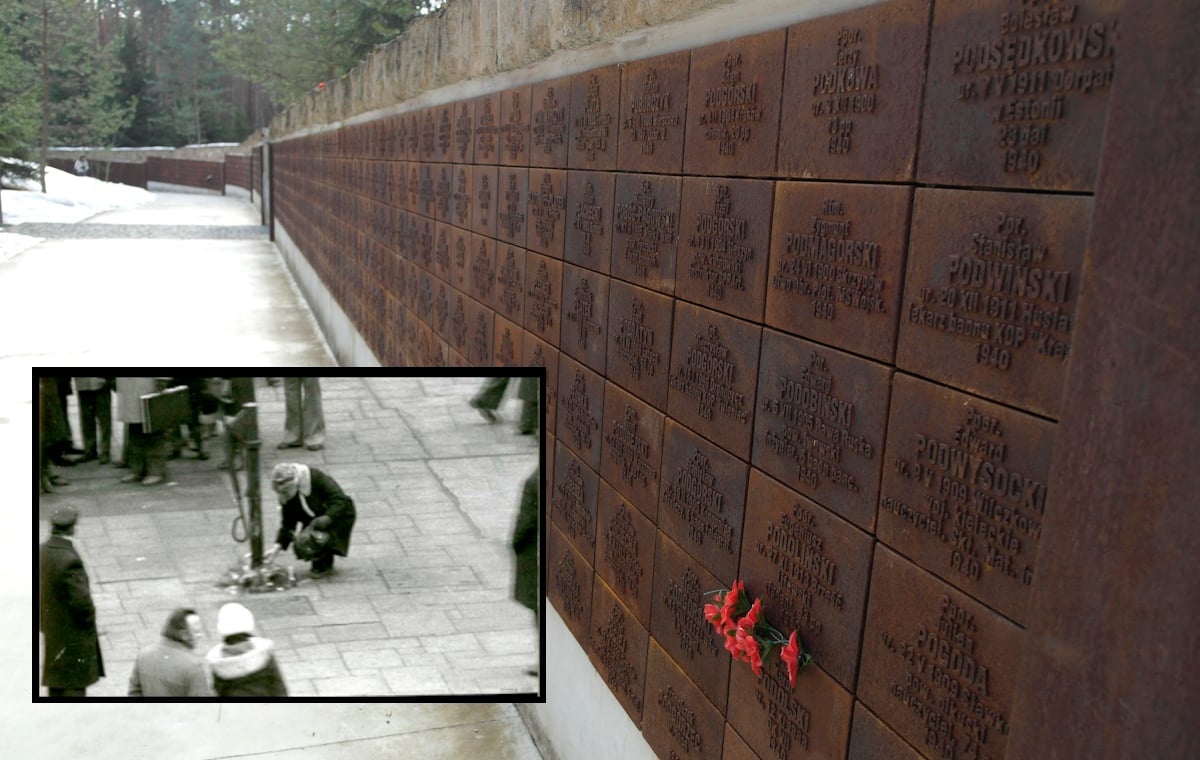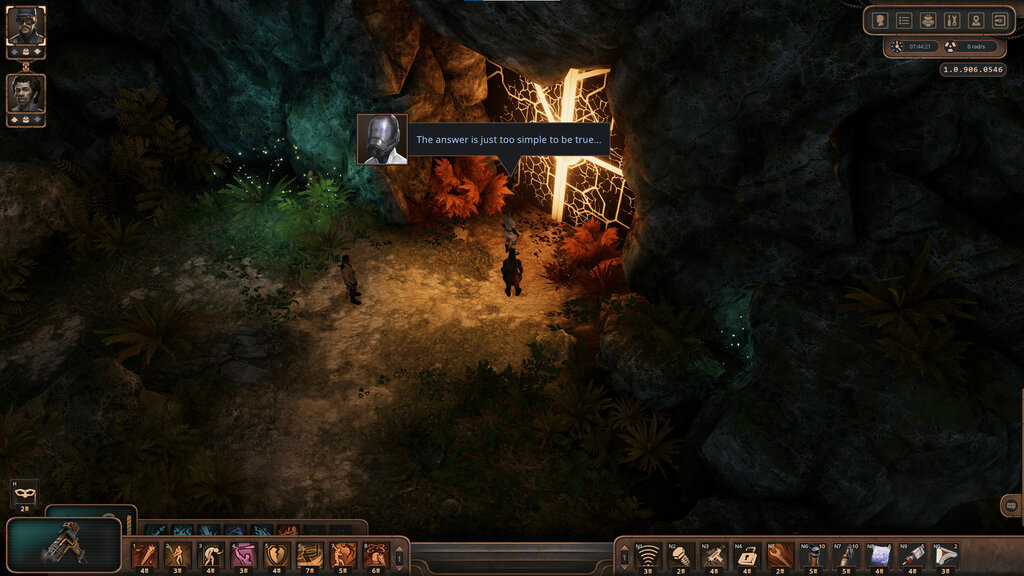

On the morning of 21 March 1980 in the Main marketplace Square in Krakow, Valenty Badylak chained himself to the well, poured gasoline and set fire, protesting against lying by the authorities of the Polish People's Republic about the Katyn crime and demoralization of youth.
chained to the pump in the Main marketplace Square in Kraków, Valentine Badylak tried to save passersby, but it was very hard and dangerous. On his chests, he had a copper tablet on the wire with an engraved text: "Payed by Katyn assassins, renegates expelled a 15-year-old only kid from school. They made a restaurant out of a solid bakery. The only 1 got drunk. W. Badylak’.
Authorities tried to conceal the fact about this event. safety Service was spreading news about Badylak's alleged intellectual illness. The following day, the Krakow press gave specified information. The ceremony was held on 25 March 1980 in Batowice Cemetery, in strict secrecy and under the control of SB. Only the boy of the deceased Bogusław and his wife was present. Valentine Badylak was buried as a John Doe. It was only after a year on the grave that the name plate was placed on the grave.
“The historian Monika Komaniecka-Łyp wrote on the website of the Kraków branch of the IPN.
The PRL authorities were covering up the case, and Badylak was made mentally ill
The announcement about this event was on the website of the Polish Press Agency, and from where it came to the press. The Polish diary (No 66, 1980) contains a short note:
In the morning of 21 B.M. in the Main marketplace Square in Krakow there was a suicide accident. An aged man took his life by pouring gasoline and arson. On his way to the hospital, he died. A 76-year-old resident of Kraków Valentina Badylak turned out to be the killer. It was established that the deceased had been treated for many years for chronic intellectual illness.
40 years earlier, in the spring of 1940. Russians killed Polish officers, prisoners of war. On 5 March 1940, the Political Office of KC WKP(b) decided to shoot Polish prisoners in camps in Kozielsk, Starobielsk and Ostashkov as well as Polish prisoners held by the NKVD in the area of pre-war east provinces of the Republic. The consequence of this decision was the Katyn crime. More than 21 1000 Polish officers, prisoners of war, were murdered.
AK soldier with the nickname “Simon”
Valentine Badylak's life was a drama. He was born on 21 December 1904 in Kraków. In the mid 1930s he became a baker, at the same time married a German-born Slave. As it later turned out, it was the first of respective of his life dramas. During the years of the occupation, the wife signed Volksdeutsch's declaration, and the only boy of Boguslaw wrote to Hitlerjugend. During the business Badylak worked in mechanical plants, was a associate of the Home Army adopting the nickname ‘Simon’.
Badylak divorced in 1946, and after his kid was recovered, he left with him on western lands. There he ran a bakery in Mrowiny, Świdnicki County, which was taken distant by communist authorities in 1950. Man’s life proved to be a scope of worries and disappointments. His son, Bogusław, became a associate of the PZPR, and in December 1953 he took up work at the Public safety Office in Gliwice.
“ Dr. Komaniecka-Łip wrote.
In 1955, Valenty Badylak married for the second time, with Irene Sławikowska, widow of Captain of the 6th Regiment of Artillery from Włodzimierz Wołyński, who was shot in the spring of 1940 by the NKVD in Katyń. It was the second wife who told him about the Katyn crime.
After the wedding the Badylaks moved to Krakow, where Valentine found employment at the AGH University, and then at the Municipal Greens Plant, where he worked until his retirement. The retirementer's peaceful life was demolished by another tragedy – in 1975 the only boy of Irena Badylak from his first matrimony died in a car accident. Badylak's wife could not accept this loss, and after the funeral, in August 1975, she committed suicide.
He could not accept not only individual dramas, but besides lies and historical lies which the communist authorities of the Polish People's Republic fed society. For the well-read, intelligent and interesting past of man, this deception, hypocrisy and lie were further “truths” with which he refused and could not accept. He decided to argue it and protest, destroying the most precious gift he had always received – his life
— wrote historian Andrzej Dobkiewicz in the Świdnica Historical Portal.
In Badylak's apartment, SB officers found a card to the family:
Dear ones, if there is nothing in there, and there are spirit brothers, I will assist you, and in peculiar moments you will feel my presence – my father and grandfather.
At the time, the authorities were doing everything they could to cover it up. It was decided to keep the Badylak intellectual illness version. However, later investigations have shown that It was a deliberate lie backed up by mock medical certificates.
It was very akin in the case of Ryszard Siwiec, who in September 1968, during the festival at the X-Year Stadium in Warsaw, burned in protest against aggression against Czechoslovakia. After that accident, he was made drunk and mentally sick in press releases.
In March 1990, a modest plaque dedicated to Valentine Badylak was unveiled at the well on the market, which states:
He couldn't have lived a lie. He preferred to die for the truth.
In 2011, a documentary “Holy Fire” was created, telling about Valentine Badylak and his suicide.
We wanted to callback the tragic character of Valentine Badylak, who did not hesitate to put his life in protest of lying to the fact about Katyń Crime.
“The authors of the movie Maciej Grabys and Jarosław Manka wrote.
Koal/PAP













